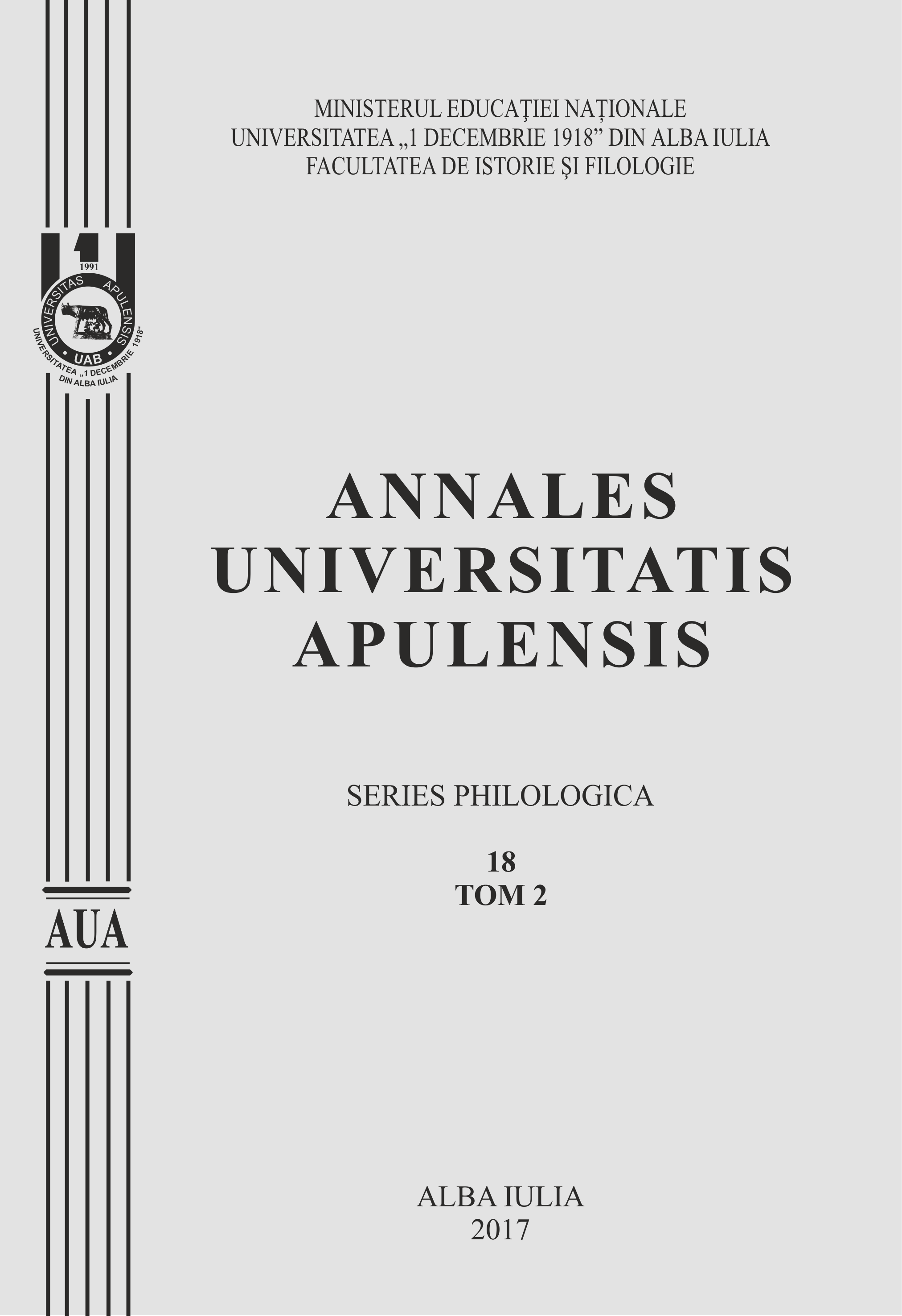DIALOGUL DINTRE CULTURI. DRUMUL DINSPRE O CULTURĂ MINORĂ ÎNSPRE O CULTURĂ MAJORĂ
THE DIALOGUE BETWEEN CULTURES. THE ROAD FROM A MINOR CULTURE TOWARDS A MAJOR CULTURE
Author(s): Ioana BotizanSubject(s): Language and Literature Studies
Published by: Universitatea »1 Decembrie 1918« Alba Iulia
Keywords: minor literature; major literature; literary capital; translation; difference; recovery; synchronicity
Summary/Abstract: The study aims to analyze "The dialogue between cultures", more specifically the path that a minor culture must go through to meet a major culture. Facilitating this path can be very useful through direct writing in an international language, thus ensuring a complete transmission of the author's message. Another way would be translations of an author from a minor culture by authors from the international perimeter, but these lose out the levers of meaning, as Emily Apter points out and until it is legitimated by a major culture, according to the text written by Pascale Casanova, "The World Republic of Letters", it must collect “literary capital” in a state and then be translated. Another chance is the so-called "visit of need", the need to know a particular culture, a culture that is made accessible to you through a book that comes out as a testimony of a country's specificity, a literature, a behavior. For example, Sei Shōnagon through "The Pillow Book" facilitates access to distant Japanese culture (the 10th century), to a ritual and a delight to the unknown, to the "difference."As far as Romanian culture is concerned, it has always suffered from this inferiority complex that it endeavored to diminish, or trying to burn stages by attempting some writers to create literary species that our literature has not developed, such as: the epopee started by Ion Heliade Rădulescu Mihaiada or the one started by Dumitru Bolintineanu Traianida (until Tiganiada by Ion Budai Deleanu and the Levant, by MirceaCărtărescu, tardive and parodic attempts) or other literary species such as the tragedy etc. The attempt to fill chronological spaces in which literature is lacking, or the attempt to increase the value of some works to try some synchronization with Western literature (such as: the writing of Camil Petrescu similar to that of Proust) it is also stated, or trying to gain literary capital to self-legislate, as does Mircea Cărtărescu through the Postmodernismul românesc, which not only reminds some predecessors of postmodernism, but also offers a real literary history.
Journal: Annales Universitatis Apulensis. Series Philologica
- Issue Year: 18/2017
- Issue No: 2
- Page Range: 53-64
- Page Count: 11
- Language: Romanian

